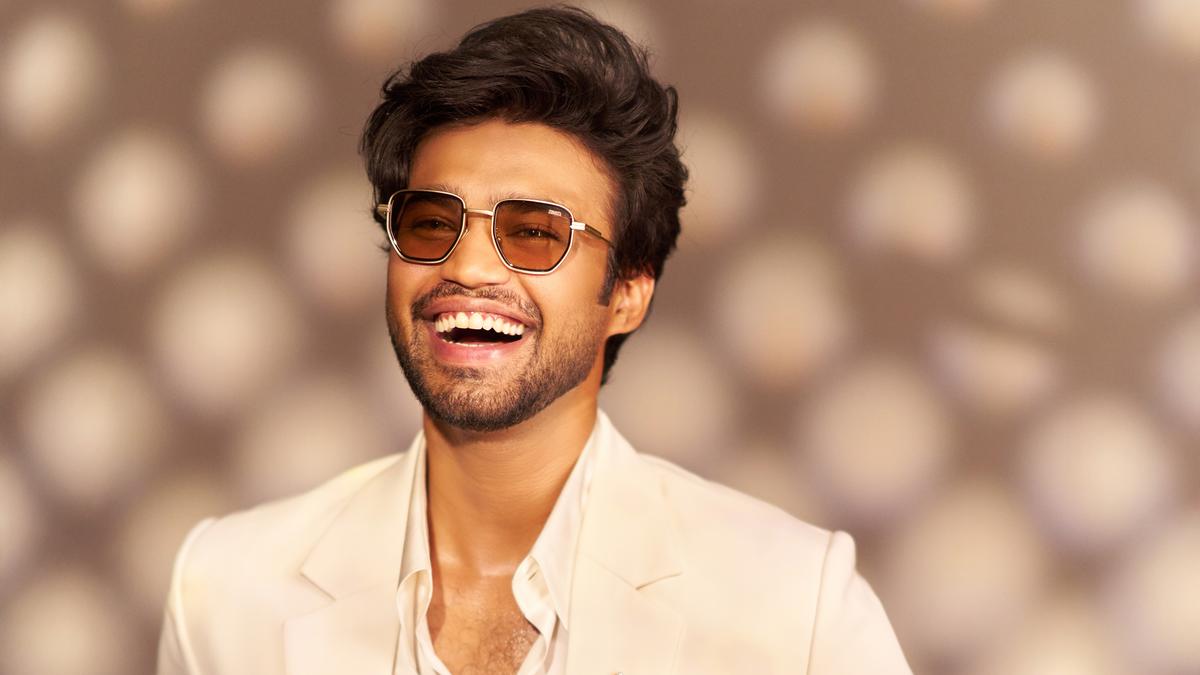Babil Khan
| Photo Credit: Special Arrangement
Babil Khan, less than three years into his career, is pleasantly media un-trained. As yet. The 26-year-old talks in speedy associative bursts peppered with calm philosophical musings. Much like his late father Irrfan, he makes a delightful interviewee, open to detours and digressions. He’s reading The Tao of Physics, he tells me, a book about how “human spirituality connects with the physics of materialism”, and has only recently started watching Peaky Blinders. “I will not talk about video-games,” he vows at one point; ten minutes later, we are discussing the splendour and beauty of Red Dead Redemption 2.
Babil’s latest film, Logout, is a digital-age thriller directed by Biswapati Sarkar. Babil plays a shut-in, fame-hungry influencer who gets caught in a nightmarish ploy. “The film examines what makes us sacrifice our authentic selves for external validation,” he says. In an interview with The Hindu, Babil spoke about the influence of technology in his life, auditioning for roles, and his favourite scenes from Irrfan’s films…
You have over 1 million followers on Instagram. Like your character in ‘Logout’, do you identify as a digital native?
Not at all. When my younger brother (Ayaan) and I were growing up, our parents took a conscious decision to keep us away from the technological development surrounding us. I got my first smart phone when I was 21. I practically grew up in a jungle (laughs). Even now, my screentime on social media is almost negligible (8 minutes, reads his Instagram stat). We always judge social media as something either good or bad when it is really about finding a balance. Our generation is facing a numbness because of the burden of information and our desire to be wanted, our desire to be loved. In a capitalistic world, it’s all business and you have to sell. That’s what this film looks into.
You debuted in Anvita Dutt’s ‘Qala’ in 2022. We also saw you in ‘Friday Night Plan’ and ‘Railway Men’. What is your own assessment of you career so far?
I honestly haven’t worked enough to feel confident to judge my own work. Like, I can’t even look at myself so early on. I am too scared to watch my own films. I remember after finishing Logout, I sent a message to Amit sir (director) that I could have done much better. I told him I’m sorry. He responded by calling me mad and saying I should just see the film, but I couldn’t. Perhaps in five more years, I will have an opinion on my work. At present I am trying to be as honest as I can with each performance. It’s like a video game — you have to keep leveling up each day.
Whom do you seek advice from in times of doubt and confusion?
In addition to my mother, Sutapa Sikdar, who is always there, I have just one individual I turn to, my acting coach Rachit Singh. He is a phenomenal actor himself. He taught me everything I know about my craft. He also showed me how to meditate and follow my gut. Currently, I don’t have the luxury of picking or setting up projects. I have to go for auditions. I recently gave an audition for Kiran Rao. It was so much fun. I told Kiran ma’am I love giving auditions, and it’s a great practice, irrespective of success or failure.
What was your cinema diet growing up?
Very unusual. Like all kids, I wanted to watch Krrish and Dhoom but my father showed me Andrei Tarkovsky’s Stalker when I was 8. I of course didn’t understand anything and slept through much of the film. That said, when I went for my film course at the University of Westminster in London and wrote my thesis, there were primal memories and impressions of watching Stalker that resurfaced. It’s quite strange what our subconscious absorbs and retains. In my teens, I fell in love with Iranian and Turkish cinema. There’s a Kurdish war drama featuring children, Turtles Can Fly, that touched me a lot. It teaches you the importance of sitting with silence.
What scenes from your father’s filmography do you revisit the most?
Off the top of my head, the scene in TheNamesake (2006) where he receives the phone call informing Tabu’s father has passed away. There’s not a single word that’s spoken. He just listens. That one scene tells you more about acting than any acting course. There is also his brief turn in The Darjeeling Limited (2007), which is humorous in such a tragic situation. I love that. I rewatch Madaari (2016), which is my favourite film of his, and Paan Singh Tomar (2012) a lot, and my team and I keep reciting dialogues from Haasil (2003). There is a great scene in that film where he is tied down to a chair. I respect it to much to mimic it.
Your dad passed away five years ago. Do you feel the industry is beginning to see you as an individual, beyond your father’s shadow?
(I don’t know about the industry but) personally, I don’t think of it as a shadow. It’s a beautiful beam of sunshine on a winter’s day. My father’s legacy is not just about acting. I am not trying to fill his shoes, but instead trying to be the best version of myself. I want to be as kind as he was, and create a body of work that moves people, makes them feel alive for a moment. That’s it.
Published – April 15, 2025 02:15 pm IST
